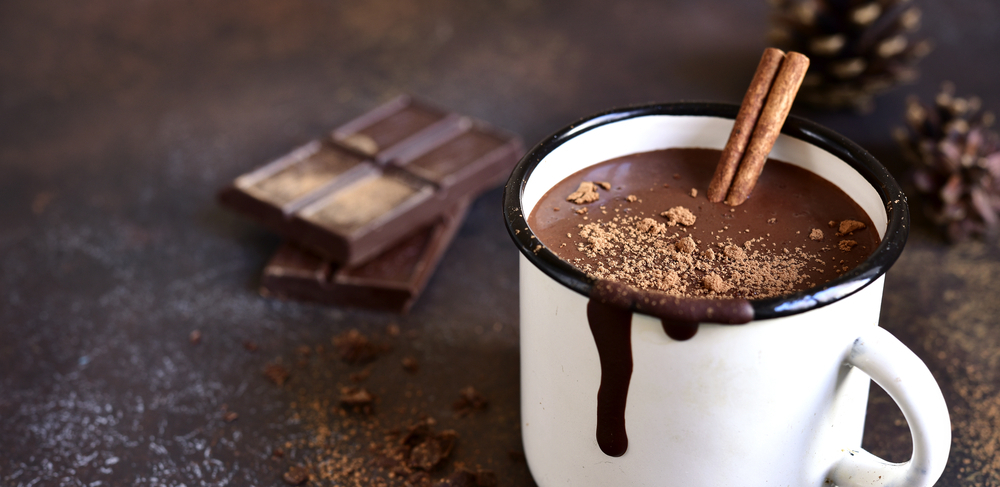Is Fermented Cocoa (Chocolate) Permissible?
Shafi'i Fiqh
Answered by Shaykh Irshaad Sedick
Question
I’m trying to keep things halal (permissible) – food and all. I know that we can’t use alcohol in cooking, thinking that “it will all evaporate” from the heat. And I’ve read the fantastic “A Guide for Consuming Various Meats, Foods, Alcohol, Animal By-Product Ingredients, and Cosmetics” by Shaykh Ilyas Patel. If cocoa beans are fermented, how can chocolate be permissible?
For now, I’ve left eating chocolate as a precaution. How do I address others with Islamic wisdom when they ask me about it?
Answer
In the Name of Allah, the Most Merciful and Compassionate. May Allah reward you for your desire to keep things as lawful as possible.
Is Fermented Food Permissible?
While fermentation is a ubiquitous process, and fermented food tends to be healthy and good for your body, one of the byproducts of the process is alcohol. Does this mean that fermented foods are unlawful?
The traces of ethanol produced by the fermentation process are not enough for the food item to be prohibited in Islam or declared unlawful. These traces are, at times, so minute that they are omitted from the product labeling due to being inconsequential. Examples of this would be yogurt and pickles, which, while fermented, create only minuscule trace amounts of ethanol and are subsequently still permitted in Islam, and Allah knows best.
Fermented drinks, however, usually contain large amounts of ethanol and should be watched for, even if not explicitly labeled as alcoholic drinks. For example, while not labeled an alcoholic drink, soy sauce contains high amounts of ethanol.
Shafiʿi Madhhab on Liquid Intoxicants
According to the dominant view of the Shafi’i Madhhab, najasa or ritualistic filth includes wine and any liquid intoxicants. [Nawawi, Minhaj Al-Talibin]
The alcohol widely used as a solvent today is denatured ethanol. Denatured ethanol is ethanol that has been made unfit for human consumption through the addition of toxins, such as methanol, naphtha, and pyridine, or bittering agents such as denatonium benzoate. However, adding toxins and bittering agents does not remove the ability of ethanol to intoxicate; it only adds toxicity and a bitter taste to its existing attributes. As such, since najasa includes any liquid that can intoxicate, denatured ethanol has to be regarded as najasa [according to the Shafi’i Madhhab]. That it can kill, is an additional and coincidental attribute that does not eliminate the point of intoxication. [Karaan, Shellac – a Fiqhi Appraisal]
Practical Application of These Rulings
There is widespread usage of denatured ethanol in products such as fruit juice, paint, ink, hand cleaners, soaps, cream, and lotions in the modern era. This widespread usage means that strict adherence to the original dominant view of the Shafi’i Madhhab is challenging, if not impossible.
Generally, contemporary Shafi’i scholars do not practice or advocate practicing strictly according to the Madhhab’s dominant view in this regard but recommend general precaution where possible, “while it is religiously more precautionary to treat them as filth.” [Keller, Reliance of the Traveler]
Contemporary Shafiʿi scholars have been and continue to encourage practice according to alternative views in this matter. See the attached answer:
Are Substances Mixed With Alcohol Excused According to the Shafi’i School?
Religious Precaution
Generally, religious precaution (wara’) is praiseworthy. Still, in light of the above-mentioned widespread use of ethanol at present, overzealous religious precaution in this matter may make life cumbersome, and Allah knows best. It is also vital to distinguish between being prudent and making the lawful unlawful, which is dangerous and in violation of Sacred Law.
I pray this is of benefit, that Allah guides us all.
[Shaykh] Irshaad Sedick
Checked and Approved by Shaykh Faraz Rabbani
Shaykh Irshaad Sedick was raised in South Africa in a traditional Muslim family. He graduated from Dar al-Ulum al-Arabiyyah al-Islamiyyah in Strand, Western Cape, under the guidance of the late world-renowned scholar, Shaykh Taha Karaan.
Shaykh Irshaad received Ijaza from many luminaries of the Islamic world, including Shaykh Taha Karaan, Mawlana Yusuf Karaan, and Mawlana Abdul Hafeez Makki, among others.
He is the author of the text “The Musnad of Ahmad ibn Hanbal: A Hujjah or not?” He has served as the Director of the Discover Islam Centre and Al Jeem Foundation. For the last five years till present, he has served as the Khatib of Masjid Ar-Rashideen, Mowbray, Cape Town.
Shaykh Irshaad has thirteen years of teaching experience at some of the leading Islamic institutes in Cape Town). He is currently building an Islamic online learning and media platform called ‘Isnad Academy’ and pursuing his Master’s degree in the study of Islam at the University of Johannesburg. He has a keen interest in healthy living and fitness.
